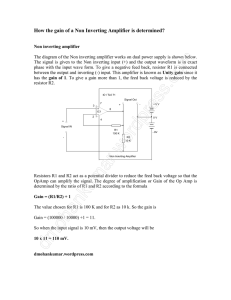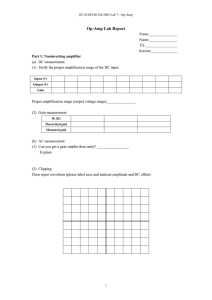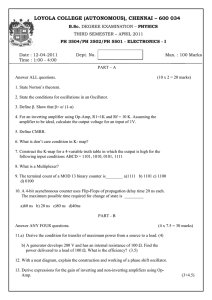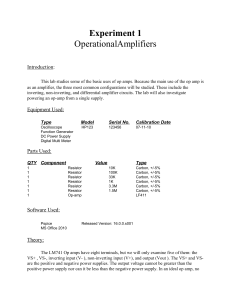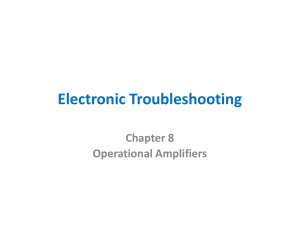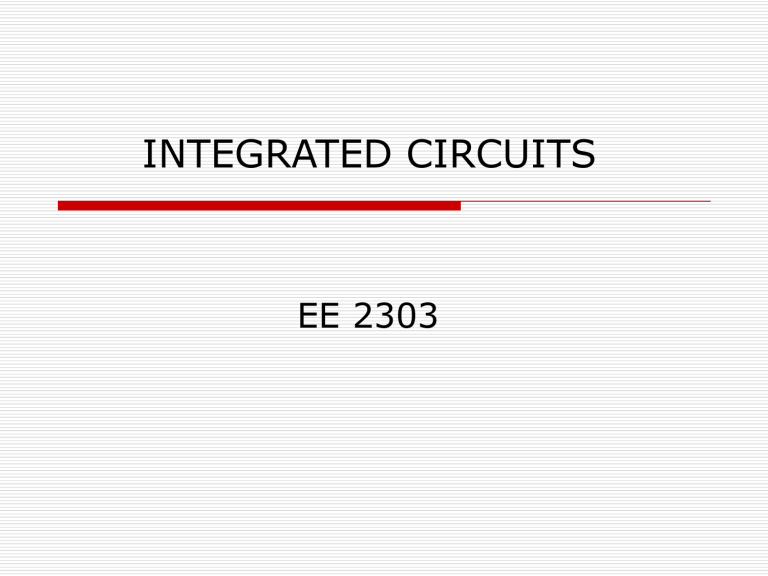
INTEGRATED CIRCUITS EE 2303 OVERVIEW Introduction What are Op-Amps? Circuit symbol and Pin- Configuration Inverting and Non-inverting modes.. Gain of an Op-Amp.. REFERENCES.. Introduction Amplifier is a device which senses an input and produces a larger version of it. Amplifiers are used to boost electrical signals in devices (radio, televisions..) Op-Amp: Class of High gain DC Amplifiers with two inputs and Single output Symbol & Pin Configuration Inverting Input Output Non-inverting Input Inverting and Non-Inverting Inverting Amplifier: • Non- Inverting input is grounded. • Signal is applied to the Inverting input. • Output is 180o out of Phase. http://www.national.com/onlineseminar/2003/opamps_basics/090303_Opamp_Trivia_Notes.pdf Non-Inverting Amplifier • Inverting input is grounded. • Signal is applied to the Non-Inverting input. • Output is in Phase. Closed Loop Connection “Output is applied back in to the Inverting Input.” Used in both Inverting and Noninverting modes of Operation. http://www.national.com/onlineseminar/2003/opamps_basics/090303_Opamp_Trivia_Notes.pdf What is Gain?? Gain = Output / Input Gain of Op-Amp (Inverting Mode)=-Rf/R1 Gain of Op-Amp (Non-inverting Mode)=1+Rf/R1 Inverting Summing Amplifier VOUT=V1+V2 Op-amp as Oscillator Differential and Common mode Common Mode: When both inputs of the signal have the same common voltage.. Output will be zero in the common mode. Pre-lab 1.Copy of LM741 Data Sheet ?? 2. What Is CMRR ?? 3. What is Slew Rate ?? REFERENCES http://www.national.com/onlineseminar/2003/opamps_ba sics/090303_Opamp_Trivia_Notes.pdf http://hyperphysics.phyastr.gsu.edu/hbase/electronic/opamp.html#c4
